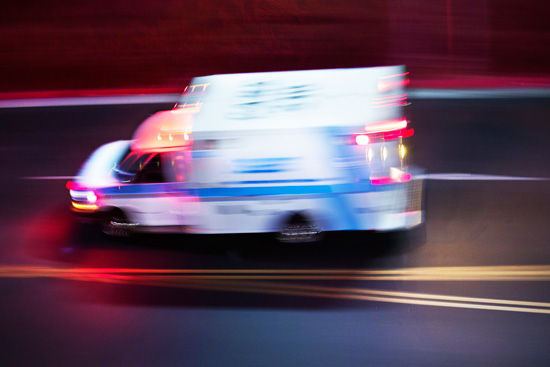More Students Sent to Hospitals for Drunkenness This Fall
Statistics show a nearly one third increase over 2015

BU officials are seeking possible causes for an increase last fall in the number of inebriated students requiring medical alcohol transports. Photo by MattGush/iStock
During the fall 2016 semester, 96 students were transported to local hospitals for extreme inebriation, up from 75 the previous autumn, according to Student Health Services data.
Of the 96 transports, the majority (79) were students under the age of 21, the legal drinking age in Massachusetts, says Leah Barison, a Wellness & Prevention Services counselor at Student Health Services (SHS).
The fall 2015 hospital runs marked a four-year low, which had encouraged University officials to believe that responsible-drinking education and enhanced enforcement were paying off. The reason for the most recent fall’s uptick is unclear, BU officials say.
It could be as simple as more drinking, says Scott Paré, acting chief of the Boston University Police Department and BU deputy director of public safety. If that’s the case, several factors could hypothetically be behind the increased imbibing, says William DeJong, a School of Public Health professor of community health sciences and a member of the University’s Alcohol Task Force. These could include more entering students this year with a history of heavy drinking and a belief among students that the University will focus on education and safety, rather than punitive discipline, if they drink too much.
Katharine Mooney (SPH’12), Wellness & Prevention director, suggests that the rise could reflect that fact that “more students and staff are calling for help for drunken students—not necessarily more students drinking in dangerous ways.”
Given the uncertainty as to what causes year-to-year changes in transport numbers, DeJong cautions against quick conclusions: “We shouldn’t make too much of year-to-year changes, but instead should focus on the overall trend across several years.”

Looking at the hospital transports trend over the past five falls, (see accompanying chart), “we’ve really had some ups and downs,” Mooney says. “We really aren’t sure what’s contributing to this pattern.” She says the University hopes to learn whether nearby peer institutions are seeing a similar pattern.
This past fall’s transports shared traits with those in previous years, according to SHS data. The majority were freshmen and women.
SHS received data on the blood alcohol content of most of the transported students and found the average was .183, more than double the legal limit and a point where “you can expect the student to be extremely intoxicated,” Barison says. “They may black out.”
The weekend leading up to Halloween saw a spike in transports, similar to previous years, the data show. The weekend before Thanksgiving was another peak period.
The University’s efforts to curb excessive drinking include a mandatory online course for first-year students, begun in 2013. The course combats misperceptions that overimbibing is typical on campuses. Also, bystander education trains students to intervene safely with drunken peers.
SHS also provides online information for parents to use in discussing drinking with their children, as well as student kits that show student leaders how to encourage responsible partying.
BU’s bolstered alcohol enforcement, begun in 2011, increases police patrols in party-heavy off-campus neighborhoods and the breakup of loud parties. It is based on a University of California program with demonstrated results in reducing off-campus drinking.
The BUPD is reviewing when to launch this year’s enhanced spring semester enforcement, Captain Robert Molloy says. The department says that spring enforcement, which they began three years ago, typically starts after spring break, allowing officers to intercept more underage students with alcohol. “However, as we move forward” after fall’s transports, Molloy says, “we will be reviewing our alcohol transports and protective custody cases to determine if we will start the enforcement earlier.”

Comments & Discussion
Boston University moderates comments to facilitate an informed, substantive, civil conversation. Abusive, profane, self-promotional, misleading, incoherent or off-topic comments will be rejected. Moderators are staffed during regular business hours (EST) and can only accept comments written in English. Statistics or facts must include a citation or a link to the citation.